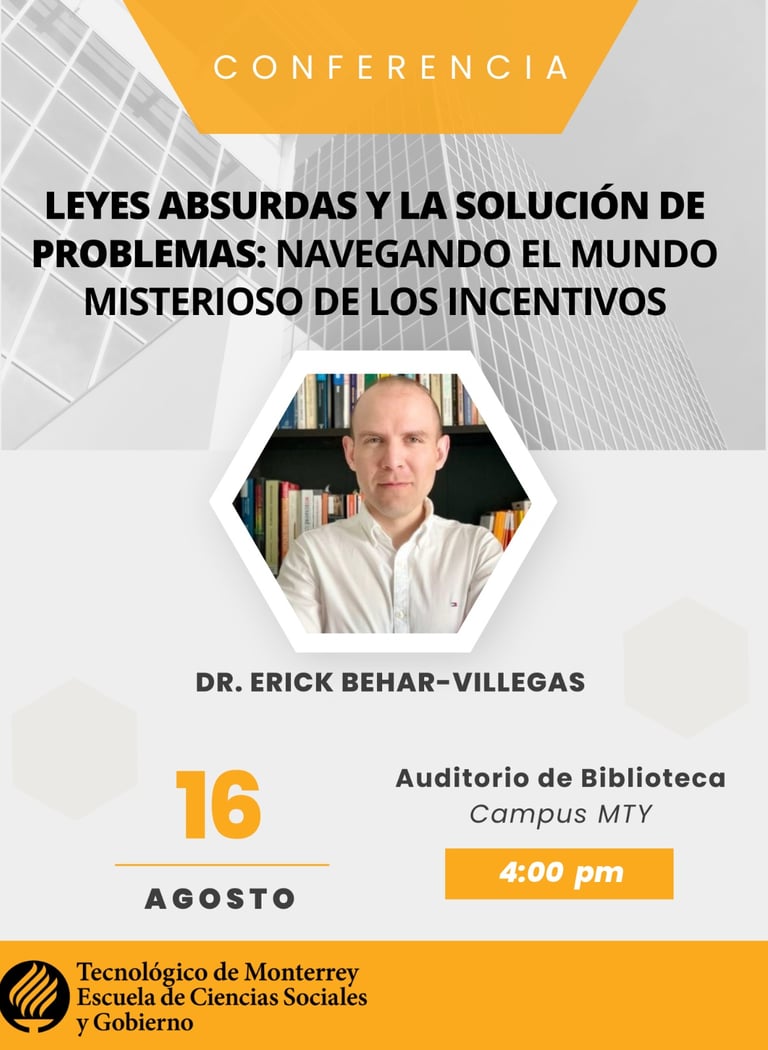ACADEMICS
The Architecture of Incentives
We can safely say humans respond to incentives, and that they matter. The more difficult question is how, yet after years of work in policy settings, I started suspecting that we cannot simply take incentives as isolated dots and examine one by one. The decisions we make in firms and governments may well have an underlying architecture, call it hierarchy if you will, of incentives that give us clues regarding a fundamental question: what could possibly go wrong? Instead of focusing only on the "problem tree", it is important to map out -using empirical evidence, cases and any valuable information available- the distinct scenarios that may arise. This sets the base for the AoI framework I have proposed.


On the Architecture of Incentives (AoI) theory and methodology
The development of the AoI theory has taken place through a series of workshops in Spain, Germany, Colombia and Mexico, including discussions with public officials, students and entrepreneurs. The first draft of the conceptual base of the AoI framework was recently presented at the Madrid conference in Austrian Economics, as some of the writings of Hayek and Mises appear as the conceptual foundations.
You can download the conference paper draft here.
If you are interested in incentives, I recommend reading Uri Gneezy's very nice book "Mixed Signals" (2023).
AoI related Conferences: TEC de Monterrey - August, 2023


Conference Abstract
Can the Law embody absurdity? Do incentives work against us? These questions may have to do much more with our daily lives than we imagine. Enter Legalandia, the imaginary republic where the Law has a life of its own, crafting invisible incentives that come back to disrupt our surroundings, which require many efforts when it comes to solving problems. In this conference, the economist and novelist, Erick Behar, also professor of behavioral economics at TEC and Berlin International University of Applied Sciences, will use storytelling to unwind the simple complexity behind incentives and the role of the Law in our lives, i.e. essential aspects common to all social sciences. We will meet at the crossroads of his novel, Perdido en Legalandia and a new framework called the architecture of incentives, hoping to look at problem-solving (in the economy, our lives and beyond) from a rather different perspective.
Download the slides here.
Contact
behar@berlin-international.de
Address
Berlin, Bogotá, Monterrey or Madrid